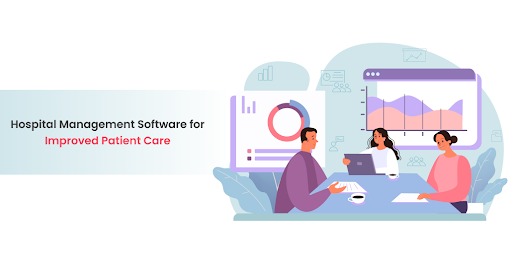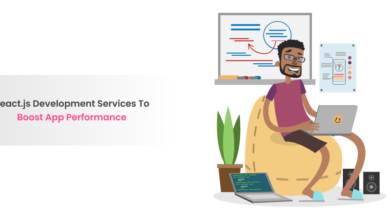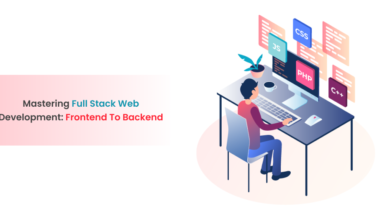Hospital Management Software for Improved Patient Care

In the fast-moving health care sector today, technology plays a very crucial role in enhancing efficiency, accuracy, and patient satisfaction. Among the most revolutionary technologies in health care is Hospital Management Software. This powerful software has greatly revolutionized patient care by providing an organized and streamlined approach to the various aspects of management of hospital operations, patient records, staff, billing, and many more.
1. Introduction to Hospital Management Software
Hospital Management Software is a wide digital solution intended for dealing with the variety of aspects within a hospital administration and patient management. Its managing complex nature in several departments, numerous staff, and the sensitive data of patients makes a system of robust, well-integrated hospital management software a necessity. It provides free interaction between various departments so that patient data can be safely shared, hence the quality of care provided is much more precise and timely.
The software is very precious not only for the big hospitals but also for clinics and other health care facilities requiring an efficient system to manage their day-to-day affairs. Hospital management software has been in the forefront to create intuitive systems that can manage lots of tasks, providing a unified solution which highly contributes to the quality of patient care, Property Management.
2. Key Features of Hospital Management Software
The hospital management software is integrated with departments and tasks, including many features. Here are some of the primary features of this type of software:
-
Patient Information Management:
One of the major elements of a hospital management software is easy and secure management of patient information. As seen above, this facility allows real time updation for all the patient information, which can be accessed by any authorized personnel in different departments. This, therefore, prevents errors on the side of the medical staff working with only current information.
-
Billing and Financial Management:
The management software system of the hospital includes provisions for billing that automatically generates bills/invoices, records payments made against them, and processes insurance claims. Effortless billing has ensured time savings for the hospitals while avoiding errors in the financial activities related to the care of patients.
-
Scheduling of Appointments:
Hospital management software will enable making appointment schedules, rescheduling them, and canceling them without much effort from the patients and staff. In doing this, the software automatically reminds the patients, reducing chances of missed appointments and enabling the hospital staff to maximize their use of time. There is efficient scheduling that gets the workflow right, optimizing patient consultations as well as check-ups.
-
Inventory and Supply Chain Management:
This hospital management software system also manages inventory so that the stock of medical supplies is always available. This is a vital feature in emergency conditions where access to equipment and medical supplies should be timely to help rescue lives. Automating the way in which the inventory of supplies is tracked helps to prevent losses while ensuring these supplies are there when required.
-
Staff Management and Payroll:
Doctors, nurses, administrative personnel, and technicians in a hospital treat patients. Each one has different shifts and timings. A module on staff scheduling, shift, payroll preparation, and leave management in the development of hospital management software takes care of all this.
This module enhances the functionality of a hospital by providing each department with adequate staff.
3. Hospital Management Software on Patient Care
Hospital management software reflects directly on the care of patients. The effective and quick handling of all medical records, appointments, and billing with the hospital management software brings quality and a positive experience to the patients’ lives. The ways through which this impacts better patient outcomes are as follows:
-
Lower Wait Times:
Due to proper scheduling and real-time data access, wait times for patients reduce as they receive their care sooner and with fewer delays.
-
Correct Data:
Incorrect information about the patient’s records or treatment history may lead to misdiagnosis of the patient or delay in treatment. With Hospital Management Software, the likelihood of this mistake is reduced because all the information is kept centralized and accessible to make sure that a patient’s file is correct.
-
Increased Patient Satisfaction:
Patients receive an uninterrupted experience-from scheduling to their treatment. With all information being available to health care providers, the patients are assured that the health care team understands their requirement.
-
Data Security and Privacy:
Hospital management software development emphasizes greatly on the safety of the information of patients in hospitals through adherence to HIPAA and other stringent regulations. Thus, this ensures the confidentiality of patient information, which safeguards trust between the patients and the healthcare facility.
4. Evolution of Hospital Management Software
Hospital Management Software is also evolving continuously with new challenges emerging in healthcare. As a consequence, some of the current trends include the following:
-
Telemedicine Integration:
Integration of telemedicine in most hospital management software systems. Patients may comfortably consult doctors and discuss their conditions from remotely. Indeed, the COVID-19 pandemic accelerated this trend and made healthcare accessible to various individuals, forcing them to decrease travel to physically seek medical attention.
-
AI and Machine Learning:
With the leverage of AI-based tools, hospital management software is now integrated to provide predictive analytics for improved diagnosis and patient care personalization. Advances may even help healthcare providers predict the potential complications.
-
Blockchain Data Security:
One of the primary areas of concern in the designing of hospital management software is data security. Using blockchain, patients’ records may be managed efficiently in a decentralized, tamper-proof way. In this regard, with blockchain, the data in hospitals is secured yet traceable.
-
Cloud-based Solutions:
Cloud-based hospital management software systems allow real-time updates and provide easy access to data from any place, allowing healthcare providers to deliver care more effectively.
5. Benefits of Hospital Management Software for Healthcare Providers
-
Efficiency:
The hospital management software will automatically automate administrative and paper work, allowing healthcare providers to pay more attention towards patients rather than paperwork.
-
Effective resource utilization:
Hospitals would manage the utilization of resources, like equipment and the workforce, in a way that the needs of patients would be met without extravagance in terms of exorbitant costs.
-
Improved Compliance:
Hospital management software systems enable the hospitals to keep track of all the treatments and services rendered in detail and with accuracy for improved compliance with regulatory requirements.
-
Lower Cost:
The hospital management software saves hospitals highly from waste and reduces errors that help in saving money needed in the long run.
-
Data-informed Decisions:
With advanced reporting and analytics, healthcare providers can take decisions based on very accurate data, which improved patient outcomes and resulted in better hospital performance.
Conclusion
Hospital management software system is an important tool that the health sector has used and ensured to enhance patient care, make operational procedures effective, and keep data safe. The features and benefits of an integrated hospital management software system prove that such tools are positively upgrading hospital administration, financial management, and, most importantly, patients’ satisfaction. Hospital management software development will further go ahead with further developments in technology, integrating new functionalities and offering even more sophisticated solutions. This software is of immense value to any healthcare facility that looks forward to developing its overall efficiency and to provide patients with better services. In current healthcare environments, Hospital Management Software is no luxury but a need to achieve good performance in patient care.





